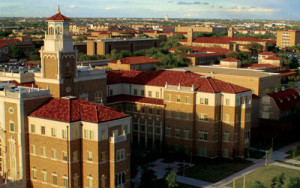Amarillo voters approved an economic development corporation in 1989 for one purpose: to invest sales tax revenue in job-creation opportunities.
There have been a few misfires over the years. There also have been some spectacular successes. I hold up the Bell/Textron aircraft assembly operation as an example of success.
The AEDC has ponied up $15 million for Texas Tech University to build and operate a school of veterinary medicine in Amarillo.
Yes, this is a wise investment of sales tax revenue.
https://www.texastribune.org/2016/09/20/amarillo-chips-15-million-texas-techs-vet-school-p/
As the Texas Tribune reports: “Not only is this a wonderful opportunity for students seeking careers in veterinary medicine, particularly in a region known as the livestock capital of the United States, it’s an investment in our community and economy,” said Mayor Paul Harpole.
Is this a done deal? No. Texas A&M University, which has the state’s only veterinary medicine school, has objected. For the life of me, I don’t understand the objection. The A&M System is going to lobby the Higher Education Coordinating Board to deny Tech’s request for a new school in Amarillo.
The Tribune also reports: “Texas has a severe shortage of rural veterinarians who are crucial to the foundations of our economy, the vibrancy of our communities and the safety of our food supply,” said Tech System Chancellor Robert Duncan. “There is no better place to transform the future of veterinary education and answer this call than in Amarillo.”
AEDC spends money it collects in its half-cent sales revenue stream. It’s a wise use of sales tax. Tech officials estimate the vet school would create about 100 well-paying jobs. It’s a bit difficult to calculate the return on investment that those jobs would bring.
The return could be huge.
The coordinating board reportedly has expressed some concern about whether another vet school for Texas is even necessary.
My question is this: When did increasing educational opportunities for students interested in pursuing a valuable profession become a bad thing?


